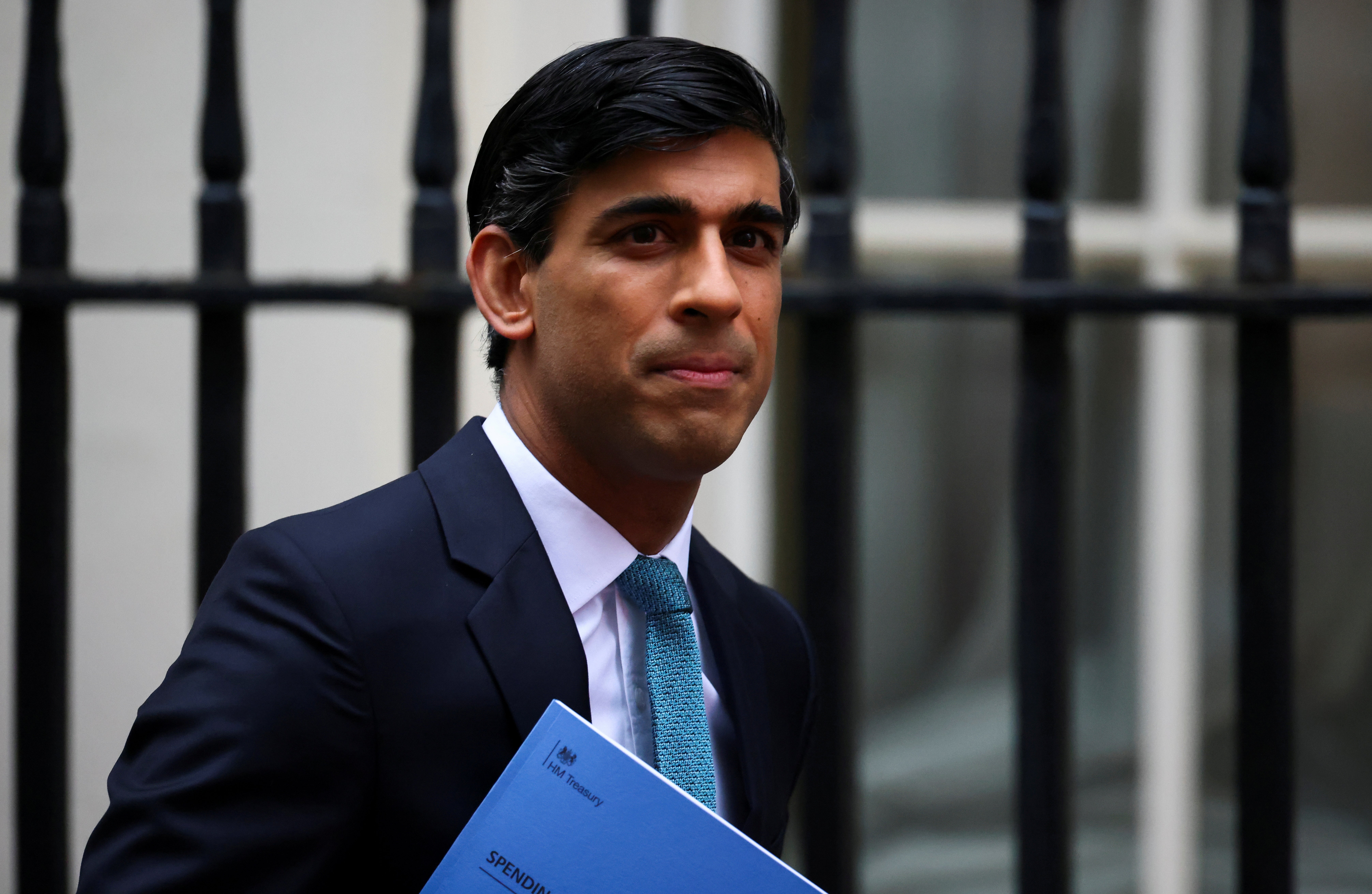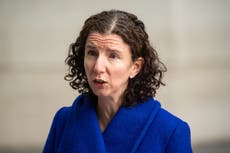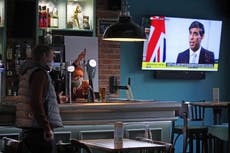Rishi Sunak ‘plotting £6bn raid on personal tax allowances’
The plans could cost the average family £250 per year by 2024-25

A stealth tax raid may be sneaked into next month’s Budget, with the Treasury reportedly plotting to freeze personal income tax allowances in a move that could cost the average family £250 per year by 2024-25.
Millions of people may be forced to pay more in tax under plans reported by The Telegraph, which said officials were looking into abandoning the planned increases for the two lower tax thresholds – the personal allowance and the basic rate.
This would mean that the £12,500 and £50,000 threshold do not rise in line with inflation, cancelling planned tax relief.
People can currently earn up to £12,500 annually without paying income tax. This figure should rise with inflation each year, with the threshold forecasted to increase to around £13,250 by the 2024 election. Meanwhile, the £50,000 limit above which people are taxed at 40 per cent is due to hit an estimated £53,000 by the time voters go to the polls again.
The move is likely to be announced on 3 March, the newspaper reported, citing former Treasury sources, while one source working on the Budget was quoted as describing the plan as “quite logical”. Rishi Sunak, the chancellor, has repeatedly spoken about the government needing to balance its finances, even as the country faces the massive economic impact of the coronavirus crisis.
Labour has warned the government not to increase taxes in recent weeks, with Anneliese Dodds, the shadow chancellor, urging Rishi Sunak to scrap a planned rise in council tax in April, while also underlining that raising taxes on businesses would leave some unable to withstand the economic damage the pandemic has wreaked.
In September, experts from four prominent economic thinktanks advised that any significant tax changes should not be brought in until the economy is in a period of sustainable recovery, although they warned that taxes would then need to increase across all levels of income.
However, any rise in tax rates – for example, increasing the 20 per cent or 40 per cent rate up by a few points – would break the Conservatives’ “triple tax lock” pledge not to increase income tax, national insurance or VAT for five years. This is likely why a “stealth tax” rise, which could bring in up to £6 billion and is less likely to result in voter backlash, is being considered.
It comes as a report by the Trades Union Congress (TUC) found that low earners are more likely to have been pushed into curbing their spending and racking up debt during the Covid crisis – raising fears people are plunging into “deeper poverty”, research has found.
Researchers found that half of low-paid workers – those earning under £15,000 – have endured a loss in their income during the public health crisis, compared to 29 per cent of those taking home £50,000 a year.
A Treasury spokesperson said: “We do not comment on future tax policy outside of fiscal events.”





Join our commenting forum
Join thought-provoking conversations, follow other Independent readers and see their replies
Comments